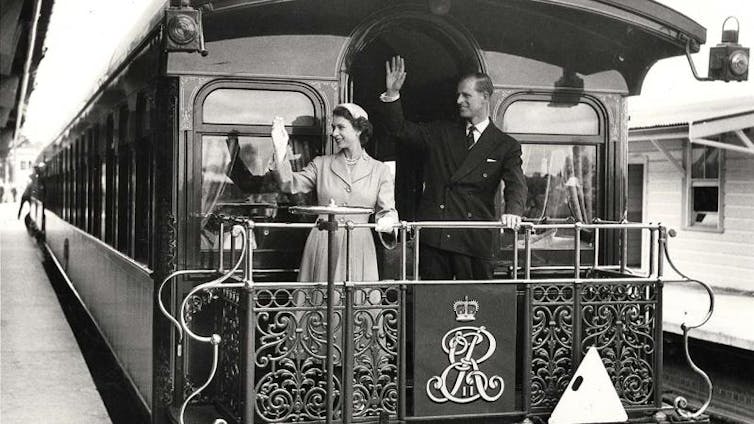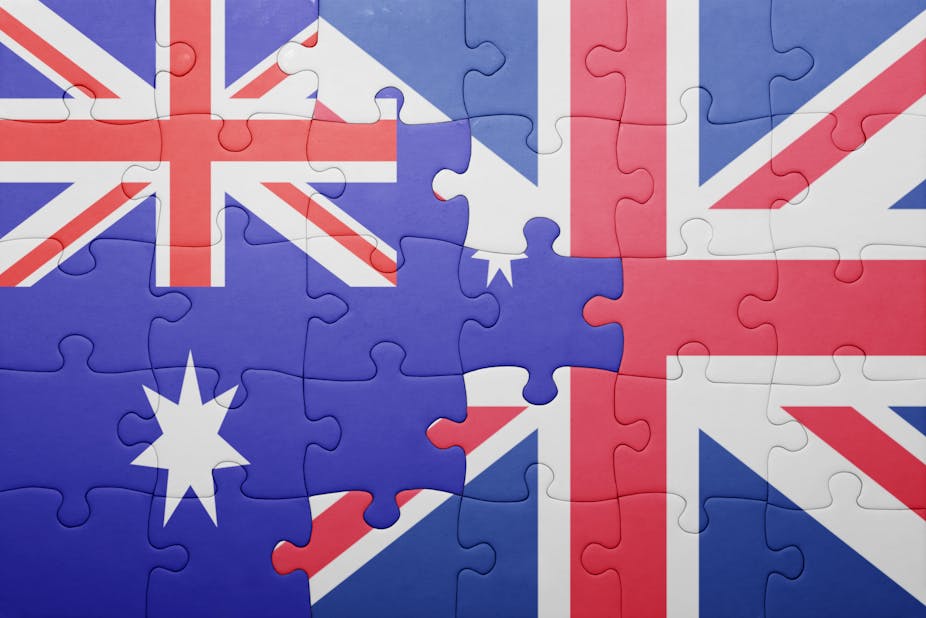This is part of a series examining Australian national identity, especially around the ongoing debate about Australia Day.
It is worth noting that Australia Day commemorates the dumping of a cargo of the outcasts of Britain on the shores of the Australian continent. It was not an act of escaping religious oppression, as in the case of America, or the founding of a new political order, as in France.
British Australia was the creation of an imperial decision. This meant that strong links to Britain, and the British monarchy, continued well into the 20th century. There were occasional republicans who advocated a so-called independent Australia, particularly in the 19th century, but, if anything, enthusiasm for the British Empire increased in the first half of the 20th century.
Australians were Australians, but they were also British. There was the proud boast that Australians were more “British” than the inhabitants of London. This, of course, was probably true given that London attracted people from all over the empire and was cosmopolitan in a way that Australia was not.
The early settlers were British in a very Australian way. Australianness was embedded in their Britishness; the two were not in conflict. In celebrating Australia Day they were celebrating themselves and their peculiar Australian way. Such celebrations could not be construed as indicating a desire to be rid of the monarchy or the empire.
The “cultural cringe” may be important for Barry Humphries and other literary figures who attended Melbourne private schools but, as Len Hume has argued, ordinary Australians of the first half of the 20th century had a lively popular culture, including great comic figures such as Roy Rene and Lennie Lower.
Moreover, Australians felt a great deal of solidarity with their British cousins. Consider the following quote:
Australians know that our future is linked with Britain, not only by ties of race and kinship, but because of hard, practical reasons.
No, the speaker was not Robert Menzies but Ben Chifley in 1948.
Witness the massively popular reception of the new monarch, Queen Elizabeth, when she visited Australia in 1954.

In 1950, Britain was still taking 38.7% of Australia’s exports, which dropped to 26% by 1960. Even in the 1950s, a strong connection between Australia and Britain made a lot of sense.
By that time, though, it had become clear that the British Empire was no longer a going concern, and that Britain’s time as a significant world power had come to an end. The old relationship between Australia and Britain was changing, and Australia was turning its political allegiances more to the US and its trade to Asia.
There was no reason before the second world war to presume that, 25 years later, there would no longer be a British Empire and that Britain would be seeking to “join Europe”.
I think that it can be argued that it came as a shock and that the history of Britain over the past 50 years can be understood, at least in part, as an attempt to deal with its loss of “greatness”. Last year’s Brexit vote indicates that the British have not yet come to terms with their new place in the world.
The shock of the post-war decline of the British Empire was also great for Australia. Cut adrift from empire, it had to refashion and remake itself. It most certainly continued to have a political, social and cultural heritage derived from Britain, but it was moving away and increasingly forming its own, separate identity.
Trade ties were diminished and large numbers of immigrants from many parts of the world arrived, reshaping the country. The bonds of solidarity with Britain so obvious to Chifley in 1948 would only puzzle a young Australian in 2017.
Again, like Britain, much of the history of Australia over the past 50 years has been an attempt to come to terms with the end of empire. Many solutions have been proposed, and tried, ranging from the new nationalism of the Whitlam years, to multiculturalism, to the idea that Australia is part of Asia. Or even a mixture of all three. And then, of course, there is the continuing issue of the place of Indigenous Australians.
Australia has still not worked out its place in a post-imperial world. It knows that it cannot be another US; Australia doesn’t possess the resources to support 300 million people. It knows that the ties with Britain will only get weaker over time. There appears still to be much anxiety about where we belong, when what is needed is a clear, sober and realistic approach to the past and the present.
Australia Day celebrates the origins of British Australia and, in a sense, can be understood as an imperial creation. In more recent times, it has become a celebration of Australian popular culture, marked by barbecues and the donning of clothing marked by the Australian flag. Is this a sign that the day has lost its relevance?
Perhaps one of the most attractive elements of Australian history since 1788 is the fact that so many of its people, at least in the early days, were the cast-offs of British society who had to make their way in an alien world that they were forced to call home.
Perhaps because of this, Australia developed a vigorous popular culture from the bush ballads to The Bulletin and beyond. There is a lot to be said for celebrating Australian ordinariness, which surely goes beyond its imperial roots.
Catch up on other pieces in the series here.

